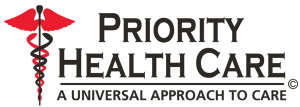Medical case management is the provision of a range of client–centered services that link clients with health care, psychosocial, and other services that improve overall health. An essential component of Medical Case Management includes the coordination and follow-up of medical treatment, as well as treatment adherence counseling.
The primary goal of medical case management is to work with the primary care provider to assist a client to maintain and improve health status, which is reflected in a client’s health indicators (CD4, viral load, acuity). Client empowerment and monitoring of service utilization (including medical appointment adherence) and health indicators are crucial elements of the medical case management.
Enrollment in Medical Case Management may not be permanent; a client’s level of need may change over time and require a different level of service to fit their present circumstances. On-going and frequent assessment by a medical case manager and a medical case management supervisor should occur to ensure that clients receive the level of care that is appropriate.
SERVICES
Key activities include: (1) completion of comprehensive assessment of service needs, (2) development of a comprehensive, individualized service plan, (3) coordination of services required to implement the plan (service linkage), (4) client monitoring to assess the efficacy of the plan, and (5) periodic re–evaluation and adaptation of the plan as necessary over the duration of the client’s case (reassessment), (6) case closure or transfer as appropriate.
Non-Medical Case Management provides advice and assistance to empower clients to access a variety of necessary services (including medical, social, community, legal and financial) that support medically related outcome measurements.
Due to the episodic nature of HIV, it is expected that clients will have varying levels of need throughout their enrollment in services. Some clients may demonstrate a low level of need and would therefore benefit from Non-medical Case Management.
Enrollment in either medical case management (active) or non-medical case management (direct services only) is not permanent; a client may move from one type of case management to the other depending on current circumstances. On-going and frequent assessment by a non-medical case manager and a medical case management supervisor occur to ensure that clients receive the level of care that is appropriate.
SERVICES
Non-medical Case Management Key activities include: (1) completion of comprehensive assessment of service needs conducted by a nonmedical case manager meeting the same qualifications as a medical case manager, (2) coordination of services required to support health outcomes, and (3) periodic reevaluation of client needs.
This may include client–specific advocacy and/or review of utilization of services.

